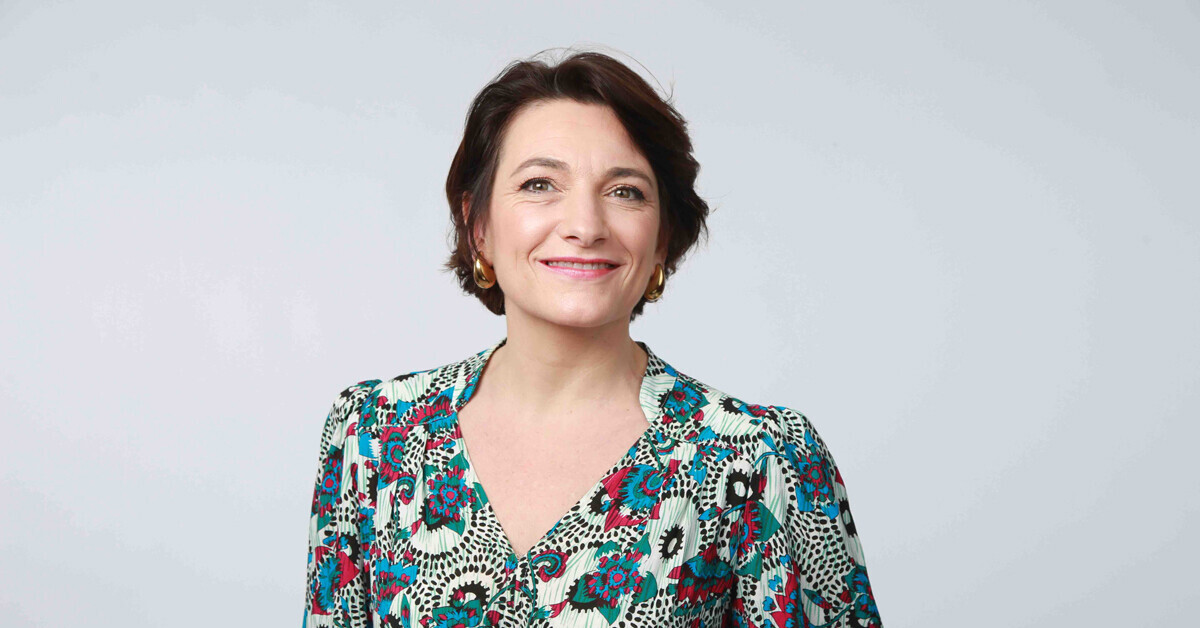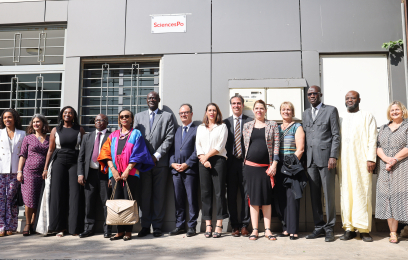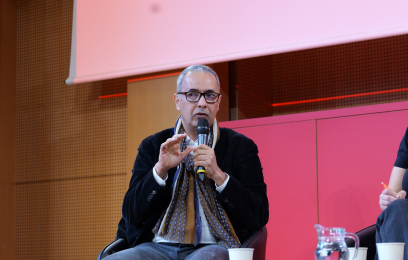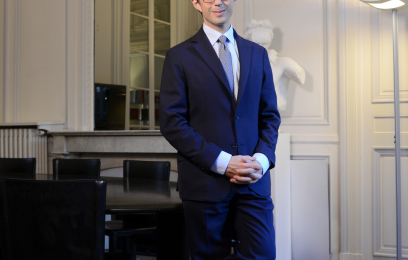Paris, January 10, 2024 - Stéphanie Balme, Director of Research at Sciences Po and the institution's Academic Freedom referent, has been elected Director of Sciences Po's Centre de recherches internationales (CERI). Stephanie Balme became the first female director of this joint Sciences Po - CNRS research unit and took up her post on January 2, 2024, succeeding Alain Dieckhoff (CNRS) who had held the position since 2013.

As head of the CERI, Stéphanie Balme will lead a policy of scientific excellence in international relations and comparative politics, focusing on the professional integration of young researchers, the development of major ANR and ERC projects, the integration of the laboratory into innovative national and international academic networks, and a genuine scientific mediation strategy. Following the laboratory's founding principles, she also hopes that CERI will remain at the forefront in welcoming scientific refugees.
"I am sincerely grateful to my colleagues at Sciences Po and the CNRS for their trust. I approach this mandate with the enthusiasm and sense of commitment that they know me for, while being aware of the challenges linked to the exercise of the profession of international researcher in a torn global space. To promote CERI's excellence, I'm delighted to be able to count on the exceptional collective intelligence of the team, as well as the support of the two deputy scientific directors, Laurence Louër (FNSP) and Hugo Meijer (CNRS)", comments Stéphanie Balme.
Stephanie Balme is an internationally-renowned specialist in the political and judicial systems of post-Mao China and Sino-European relations, whose career has been marked by extensive international experience. Having worked on three continents and lived in China for thirteen years, she holds a PhD in political science and an HDR (habilitation to supervise research - a post-PhD qualification in the French academic system) in law. She has held various research and teaching posts at institutions such as the Chinese University of Hong Kong (CUHK) and Tsinghua University in Beijing. She has also been a visiting professor at UQAM (Montreal), Ashoka (New Delhi), UBC (Vancouver) and Columbia University Law School (New York). She has also acted as a consultant for several international and European organizations. In 2017, she broadened her field of expertise to include science diplomacy during an assignment with the French Ministry of Europe and Foreign Affairs. From 2018 to 2023, Stéphanie Balme was Dean of Sciences Po's College Universitaire, committed to pedagogical innovation, working to bring together humanities, social sciences and hard sciences, and strengthening links between teaching and research. She has been professor at Paris School of International Affairs of Sciences Po (PSIA) since 2012, sits on the scientific councils of IHEDN and IRSEM, and has just been appointed associate researcher at the International Council for Science.
CERI has been at the heart of her academic career since her thesis under the supervision of Guy Hermet, political scientist and former director of CERI (1976-1985), a leading specialist in Latin America and the democratic transitions of authoritarian regimes. Under the influence of Guy Hermet, Stéphanie Balme's early research focused on the analysis of communist regimes in Asia. She is currently working on the affirmation of China's scientific and technological power. Her research interests include the impact of China's science diplomacy on international relations, contributing to work on the place of science in international relations and the global governance of science. In 2019, she co-founded the ESDI (European Science Diplomacy Initiative) with Pierre Lemonde and Enrico Letta.
CERI, a high level center for international relations and comparative politics
CERI was the first research center created at Sciences Po, in 1952. Initially a documentation unit set up within the FNSP, it stands out for its unique tradition of analysis of global international relations and comparative politics, based on interdisciplinarity and fieldwork, particularly in the so-called Global South. It brings together political scientists, sociologists, historians, anthropologists, geographers and economists. Year after year, it has become a world-renowned center of excellence.
CERI examines several fields: not only diplomacy and relations between states on a global scale (cooperation, conflicts, negotiations, global governance), but also political societies by regional or cultural area in a comparative perspective (Middle-East, Americas, Africa, Europe, the former Soviet world, Asia).
As a joint Sciences Po - CNRS research unit, CERI employs over 70 researchers and 70 doctoral and postdoctoral students. It also welcomes around 50 guest researchers and associate experts. All are supported by a supervisory team of around 15 people.
CERI researchers are also involved in a wide range of teaching activities at Collège Universitaire, Sciences Po Masters courses and doctoral programs - for example, on multilateralism, state diplomatic instruments, populism, Latin American metropolises, natural disasters, violence, transnational religious networks, migration and citizenship issues in Africa.
About Sciences Po
Since 1872, Sciences Po's mission has been to shape free minds capable of understanding the world, in order to transform it. It places academic excellence and social inclusion at the heart of its values. Its unique academic objectives are defined by a multidisciplinary approach rooted in the humanities and social sciences, a strong international perspective, and the ability to combine fundamental knowledge with professional expertise thanks to its 290 research professors and 4,600 part-time lecturers.
A world-class research university with 11 research centers, Sciences Po takes social responsibility seriously, proposing solutions to major contemporary issues including environmental and digital transformations, changes in public policy, and the fight against inequality and discrimination. The defence of academic freedom – an essential condition for democracy and social progress – is also at the heart of our academic project.
Each year, Sciences Po trains 15,000 students, 50% of whom are international, on seven campuses (Dijon, Le Havre, Menton, Nancy, Paris, Poitiers, Reims) within the Undergraduate College, and in seven schools at Master's level (international affairs, public affairs, law, journalism, management, research, urban planning). 3,500 professionals also receive continued professional training.
Contact presse : Romain Becker : media@sciencespo.fr / 01 45 49 50 79



